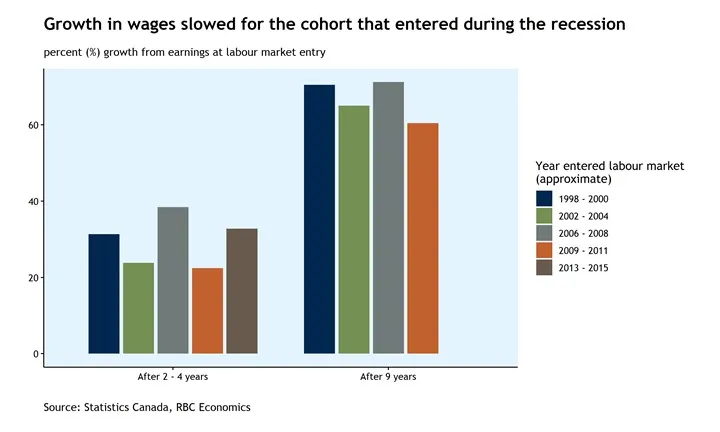Sustainable Tourism Advancement in Jamaica: Focus on SDGs
Date: Thursday, June 26, 2025
Introduction
Jamaica has initiated two innovative projects under the TUI Care Foundation to promote sustainable tourism, aligning with the United Nations Sustainable Development Goals (SDGs). These projects, Destination Zero Waste and the TUI Academy, address critical challenges in waste management and youth empowerment within the tourism sector, contributing to environmental sustainability and social inclusion.
Destination Zero Waste: Tackling Waste Pollution
Overview
The tourism industry in Jamaica, especially in Montego Bay, produces substantial waste, including plastics and glass, which often pollutes natural environments. The Destination Zero Waste programme, developed in partnership with the local NGO Smilozone Cares, aims to mitigate this issue through innovative waste reduction and upcycling initiatives.
Key Objectives and SDG Alignment
- Employment Creation: Providing sustainable jobs for up to 300 local residents, supporting SDG 8 (Decent Work and Economic Growth).
- Skills Development: Training youth in recycling and upcycling techniques, advancing SDG 4 (Quality Education) and SDG 12 (Responsible Consumption and Production).
- Waste Management Network: Establishing a collaborative waste collection and recycling system involving tourism businesses, restaurants, and entertainment venues, contributing to SDG 11 (Sustainable Cities and Communities).
- Community Engagement: Encouraging tourists to participate in eco-friendly practices through interactive tours, promoting SDG 13 (Climate Action).
Community Outreach Initiatives
- Workshops on waste management for local communities.
- Formation of environmental clubs in schools to foster environmental stewardship among youth.
TUI Academy: Empowering Youth in Hospitality
Programme Description
The TUI Academy addresses youth unemployment by providing vocational training to 120 young individuals from underserved communities. This initiative equips participants with essential hospitality skills to meet industry demands, supporting SDG 8 (Decent Work and Economic Growth) and SDG 10 (Reduced Inequalities).
Training Curriculum
- Housekeeping
- Food and Beverage Service
- Culinary Skills
- Tour Guiding
Additional Skills and Opportunities
- Life skills development including conflict resolution, emotional intelligence, and substance abuse prevention.
- Internships with local tourism businesses to gain practical experience and enhance employability.
Promoting a Circular Economy through Tourism
The TUI Care Foundation’s initiatives in Jamaica contribute to establishing a circular economy by integrating waste reduction and vocational training within the tourism sector. These efforts align with SDG 12 (Responsible Consumption and Production) and SDG 17 (Partnerships for the Goals), fostering sustainable economic growth and environmental responsibility.
Similar programs have been implemented globally in countries such as Thailand, Kenya, Zanzibar, and Mauritius, demonstrating a scalable model for sustainable tourism development.
Conclusion: Advancing Sustainable Development in Jamaica’s Tourism Sector
The Destination Zero Waste and TUI Academy projects represent significant progress towards sustainable tourism in Jamaica by addressing environmental and social challenges concurrently. These initiatives contribute to multiple SDGs by:
- Creating employment and enhancing skills for local communities (SDG 8, SDG 4).
- Reducing environmental pollution through innovative waste management (SDG 12, SDG 13).
- Empowering youth from disadvantaged backgrounds to access sustainable career opportunities (SDG 10).
- Engaging tourists and local stakeholders in sustainable practices (SDG 11, SDG 17).
Through these transformative programs, Jamaica is setting a precedent for sustainable tourism that benefits both the environment and society, fostering a resilient and inclusive tourism industry aligned with the Sustainable Development Goals.
1. Sustainable Development Goals (SDGs) Addressed in the Article
- SDG 8: Decent Work and Economic Growth
- The article highlights youth empowerment through vocational training and job creation in the hospitality sector, directly supporting inclusive and sustainable economic growth and productive employment.
- SDG 12: Responsible Consumption and Production
- The Destination Zero Waste programme focuses on waste reduction, recycling, and upcycling, promoting sustainable consumption and production patterns.
- SDG 13: Climate Action
- By reducing waste pollution, especially plastics in oceans and natural landscapes, the initiatives contribute to climate action and environmental protection.
- SDG 14: Life Below Water
- The article mentions preventing waste from polluting oceans and rivers, which aligns with conserving and sustainably using marine resources.
- SDG 15: Life on Land
- Efforts to reduce waste pollution in natural landscapes support the protection, restoration, and promotion of sustainable use of terrestrial ecosystems.
- SDG 4: Quality Education
- The TUI Academy provides vocational training and life skills education to youth, enhancing inclusive and equitable quality education.
2. Specific Targets Under the Identified SDGs
- SDG 8: Decent Work and Economic Growth
- Target 8.6: Substantially reduce the proportion of youth not in employment, education or training.
- Target 8.3: Promote development-oriented policies that support productive activities, decent job creation, and entrepreneurship.
- SDG 12: Responsible Consumption and Production
- Target 12.5: Substantially reduce waste generation through prevention, reduction, recycling, and reuse.
- Target 12.8: Ensure that people have relevant information and awareness for sustainable development and lifestyles in harmony with nature.
- SDG 13: Climate Action
- Target 13.3: Improve education, awareness-raising and human and institutional capacity on climate change mitigation, adaptation, impact reduction, and early warning.
- SDG 14: Life Below Water
- Target 14.1: Prevent and significantly reduce marine pollution of all kinds, particularly from land-based activities.
- SDG 15: Life on Land
- Target 15.1: Ensure the conservation, restoration and sustainable use of terrestrial and inland freshwater ecosystems.
- SDG 4: Quality Education
- Target 4.4: Increase the number of youth and adults who have relevant skills, including technical and vocational skills, for employment.
3. Indicators Mentioned or Implied in the Article to Measure Progress
- Employment and Training Indicators
- Number of local residents employed through the Destination Zero Waste programme (up to 300 jobs created).
- Number of youth trained and gaining vocational skills through the TUI Academy (120 young people targeted).
- Number of internships and job placements secured by program graduates.
- Waste Reduction and Recycling Indicators
- Amount of waste collected, recycled, and upcycled through the Destination Zero Waste initiative.
- Number of waste collection and recycling networks established involving local businesses.
- Participation rates in community workshops and environmental clubs focused on waste management.
- Environmental Impact Indicators
- Reduction in plastic and glass waste pollution in landfills, oceans, rivers, and natural landscapes.
- Engagement of tourists in eco-friendly practices and upcycling tours.
- Education and Awareness Indicators
- Number of young people receiving life skills education (conflict resolution, emotional intelligence, substance abuse prevention).
- Establishment and activity levels of environmental clubs in schools.
4. Table of SDGs, Targets, and Indicators
| SDGs | Targets | Indicators |
|---|---|---|
| SDG 8: Decent Work and Economic Growth |
|
|
| SDG 12: Responsible Consumption and Production |
|
|
| SDG 13: Climate Action |
|
|
| SDG 14: Life Below Water |
|
|
| SDG 15: Life on Land |
|
|
| SDG 4: Quality Education |
|
|
Source: travelandtourworld.com







